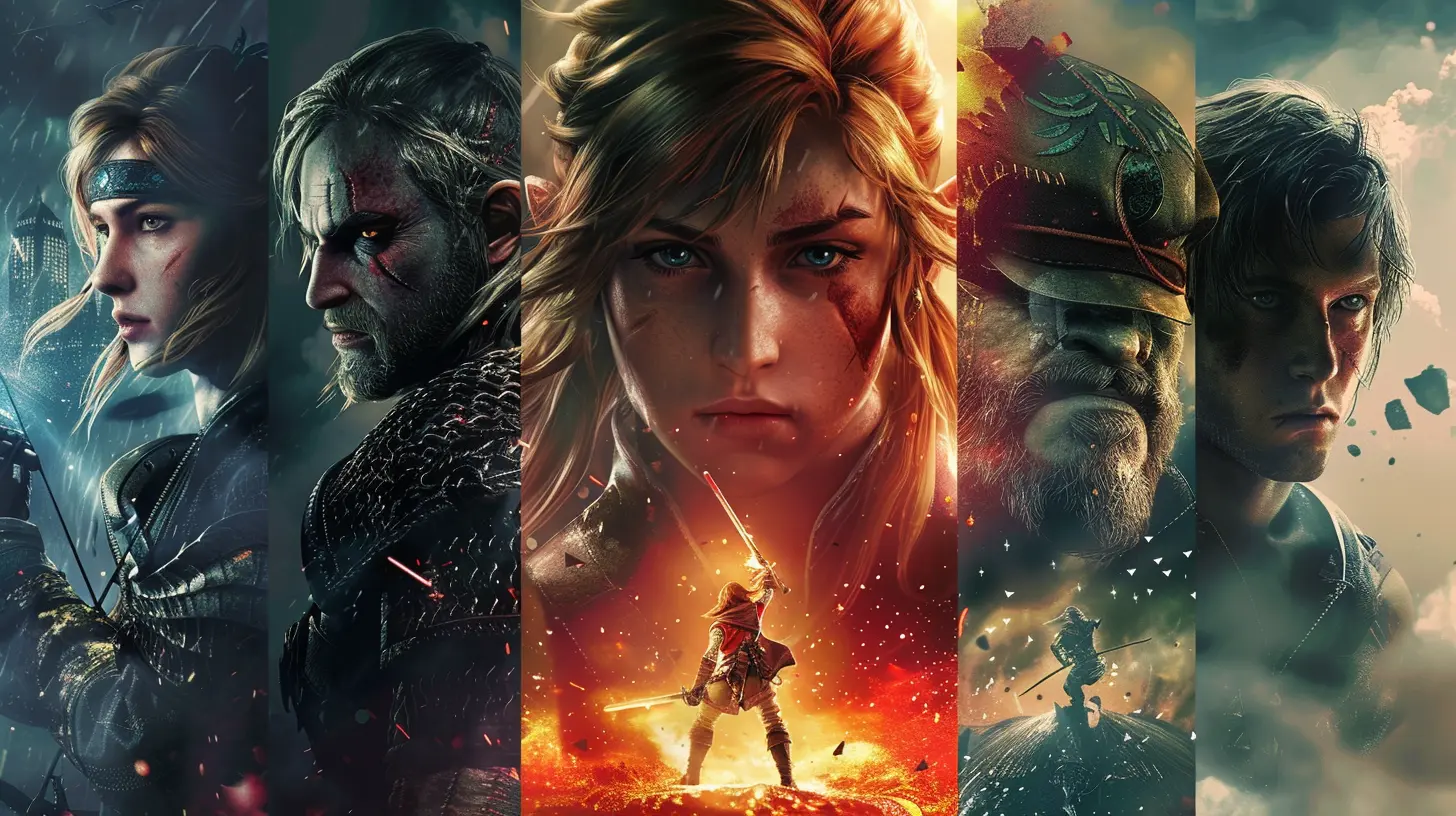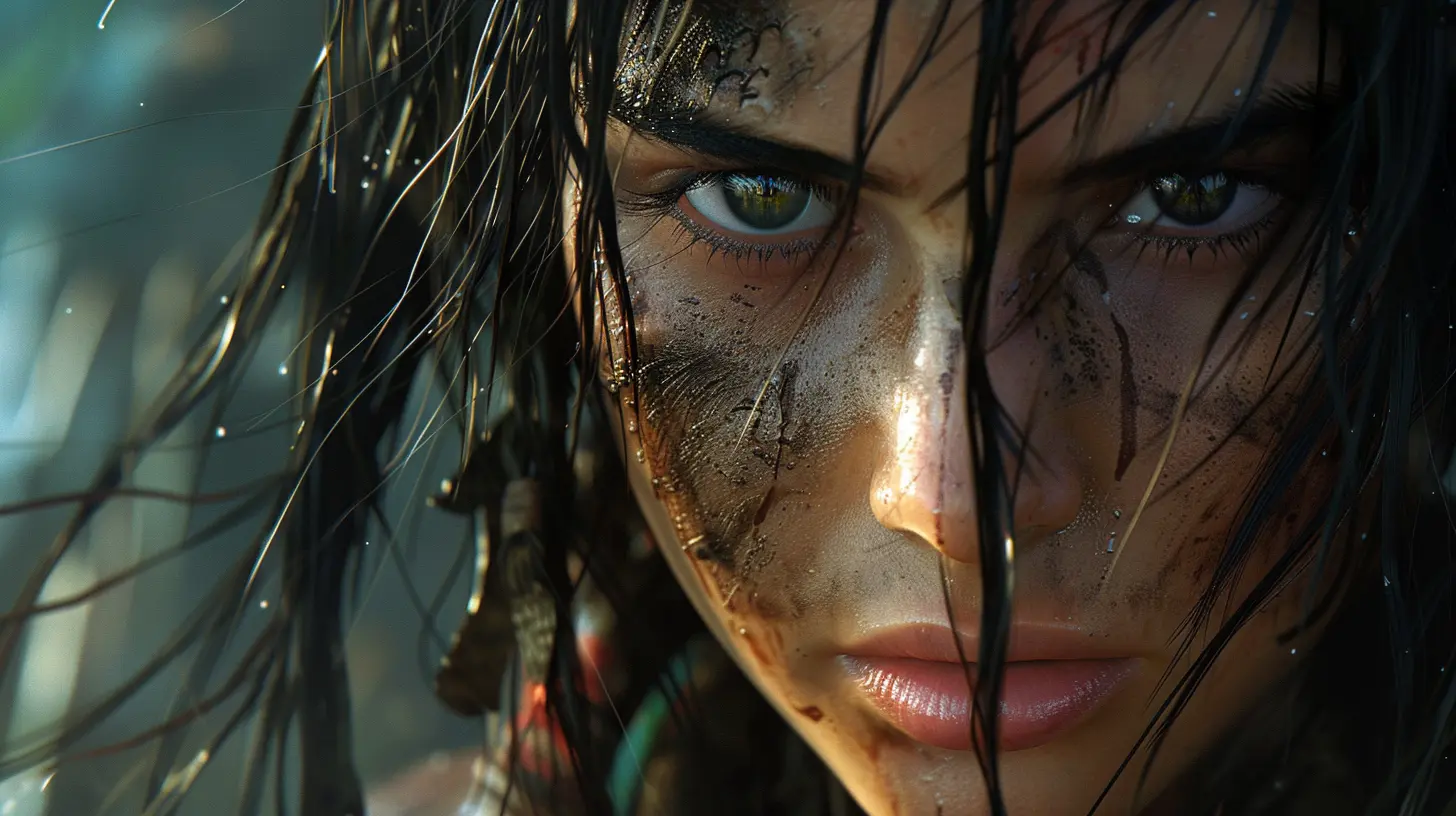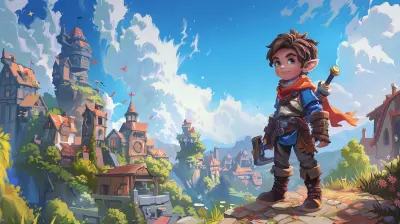Why Tragic Flaws Make Video Game Characters Compelling
17 September 2025
Let’s face it—nobody gets attached to a perfect protagonist. Sure, they might save the world, rescue the princess, or defeat the ultimate evil, but something about them just doesn’t stick. Why? Because they don’t feel real. Now give that same hero a tragic flaw—a personal weakness that complicates their journey—and suddenly, they’re magnetic. They’re not just characters anymore; they’re human.
In the world of video games, tragic flaws are like the seasoning in an otherwise bland meal. They add depth, flavor, and complexity, pulling us in and making us care about the pixelated folks on our screens. But why is that? What is it about these imperfections that keep us hooked? Grab your favorite controller and let's chat about it.

What Is a Tragic Flaw, Anyway?
Before we dive headfirst into the gaming world, let’s break down what a tragic flaw actually is. At its core, a tragic flaw (or hamartia, if you want to sound fancy) is a deep-seated weakness or shortcoming in a character that leads to their downfall—or at least some serious complications.Think about characters like Achilles from Greek mythology. His invincibility was unmatched, except for that one pesky heel. That heel wasn’t just a literal Achilles' heel—it was a metaphor for the vulnerabilities we all carry. In a modern context, tragic flaws make characters relatable and fascinating because, newsflash: we all have flaws.
But apply this concept to video games, and it becomes even more interesting. Why? Because in games, you’re not just watching the character’s journey—you’re living it. And when their flaws affect their decisions, chances are, it’s affecting your decisions too. It’s a recipe for emotional investment like no other.

Flawed Heroes Are Relatable Heroes
Who wants a hero that always gets it right? Nobody. That’s not how life works, and deep down, we know it. Video game characters with flaws remind us of our own struggles, making their stories resonate on a deeper level.Take Arthur Morgan from Red Dead Redemption 2, for instance. On paper, he’s your typical outlaw—robbing banks, running from the law, and doing morally questionable things left and right. But dig deeper, and you see a man grappling with loyalty, regret, and the weight of his choices. He’s not just a cowboy; he’s a reflection of anyone who’s ever felt torn between right and wrong.
Or let’s talk about Joel from The Last of Us. Sure, he’s a survivor in a world gone to hell, but his flaw—his inability to let go of his grief and his overprotectiveness—leads to decisions that are morally gray at best and outright catastrophic at worst. And yet, we get it. We get him. Because who wouldn’t go to extreme lengths to protect their loved ones, even if it’s not the “right” thing to do?
These characters don’t just fight bad guys or save the day; they wrestle with their inner demons. And because we’ve all wrestled with our own demons, we’re drawn to them like moths to a flame.

Tragic Flaws = High-Stakes Drama
Let’s admit it: we love drama. Whether it’s a tense boss battle, an emotional cutscene, or a nail-biting decision with no perfect answer, tragic flaws amp up the stakes.Imagine playing Mass Effect without Commander Shepard's internal battles. Sure, the space missions and alien diplomacy are cool, but it’s Shepard’s doubts, moral conflicts, and struggle with leadership that give the game its heart. What’s the point of saving the galaxy if you don’t feel the weight of the choices you had to make along the way?
And don’t even get me started on Geralt of Rivia from The Witcher series. His stoic exterior might scream “badass monster hunter,” but his flaws—his stubbornness, his emotional repression, and his questionable decision-making—are what lead to some of the most jaw-dropping moments in the series. Whether he’s breaking hearts, making enemies, or getting himself into trouble, his flaws ensure that his story is anything but predictable.
Tragic flaws create a domino effect. One bad decision spirals into another, and before you know it, the stakes are sky-high. That emotional rollercoaster? That’s what keeps us glued to the controller.

When Flaws Lead to Redemption (or Not)
One of the coolest things about tragic flaws is that they can lead to redemption—or, in some cases, utter failure. Both outcomes are equally captivating, and here’s why: they feel earned.Let’s revisit Arthur Morgan. (Yeah, I know I mentioned him already, but c’mon, he’s a masterpiece of character design.) His tragic flaw—his blind loyalty to Dutch—causes a lot of heartache, but it also paves the way for one of gaming’s most memorable redemption arcs. The way he evolves, grapples with his mistakes, and ultimately seeks to make amends gives his story a level of emotional resonance that very few characters achieve.
But not every character gets a redemption arc, and that’s okay too. Take Sephiroth from Final Fantasy VII. His arrogance and god complex lead him down a dark, destructive path. There’s no turning back for him—and the tragedy of it all is what makes him such an unforgettable antagonist. Not all stories need a happy ending, and sometimes a character’s inability to overcome their flaws is what cements their legacy.
Flaws give characters room to grow—or, alternatively, room to fall apart. And in either case, we can’t look away.
The Interactive Element: Walking in Their Shoes
Here’s the thing about video games: they’re interactive. When you’re reading a book or watching a movie, you’re a passive observer. But when you’re playing a game, you’re an active participant. You’re not just watching a character deal with their flaws; you’re living them.Let’s take Shadow of the Colossus as an example. Wander, the protagonist, is driven by a tragic flaw: his desperate, almost obsessive need to save someone he loves. As you guide him through the game, you start to realize that his actions—killing these majestic, peaceful colossi—aren’t as noble as they seemed. And yet, you keep going. Why? Because you feel his desperation, his guilt, and his determination. His flaws become your flaws.
This level of immersion is what sets video games apart. When a character’s flaw leads to a tough decision—whether it’s betraying an ally, sacrificing something important, or taking a moral shortcut—it doesn’t just affect the story; it affects you. It’s personal, and that’s what makes it so impactful.
Flaws Aren’t Just for Heroes
It’s not just the protagonists who benefit from a good ol’ tragic flaw. Villains and side characters with weaknesses are equally compelling. After all, who likes a one-dimensional bad guy? Nobody.Take Vaas Montenegro from Far Cry 3. Sure, he’s unhinged, violent, and downright terrifying, but his tragic flaw—his warped sense of loyalty and his inability to break free from his own demons—makes him more than just a crazy antagonist. He’s unpredictable, and that makes him unforgettable.
Even side characters can shine when given a tragic flaw. Think about Tifa Lockhart from Final Fantasy VII. Her insecurities and fear of confrontation make her feel real and relatable, even as she kicks butt in combat. These flaws don’t just flesh out the main characters—they create a richer, more immersive world that we can’t get enough of.
Why We Love the Tragic
So why do we keep coming back for more? Why do we subject ourselves to the heartbreak, the moral dilemmas, and the bittersweet endings? Because tragic flaws remind us that even in a digital world of superpowers and save points, humanity shines through.They make us root for characters, cry for them, and desperately wish for their success—even when they don’t get it. They make us ponder our own flaws and how they shape our lives. And ultimately, they make video games more than just a form of entertainment; they make them an emotional experience.
So the next time a video game character frustrates you with their poor decisions, take a step back. Remember—it’s their flaws that make them memorable. Without them, we’d just be playing as lifeless avatars. And honestly, where’s the fun in that?
all images in this post were generated using AI tools
Category:
Video Game CharactersAuthor:

Lana Johnson
Discussion
rate this article
1 comments
Arden McGill
Great insights on character depth!
October 3, 2025 at 4:03 AM

Lana Johnson
Thank you! I'm glad you found the insights valuable!


